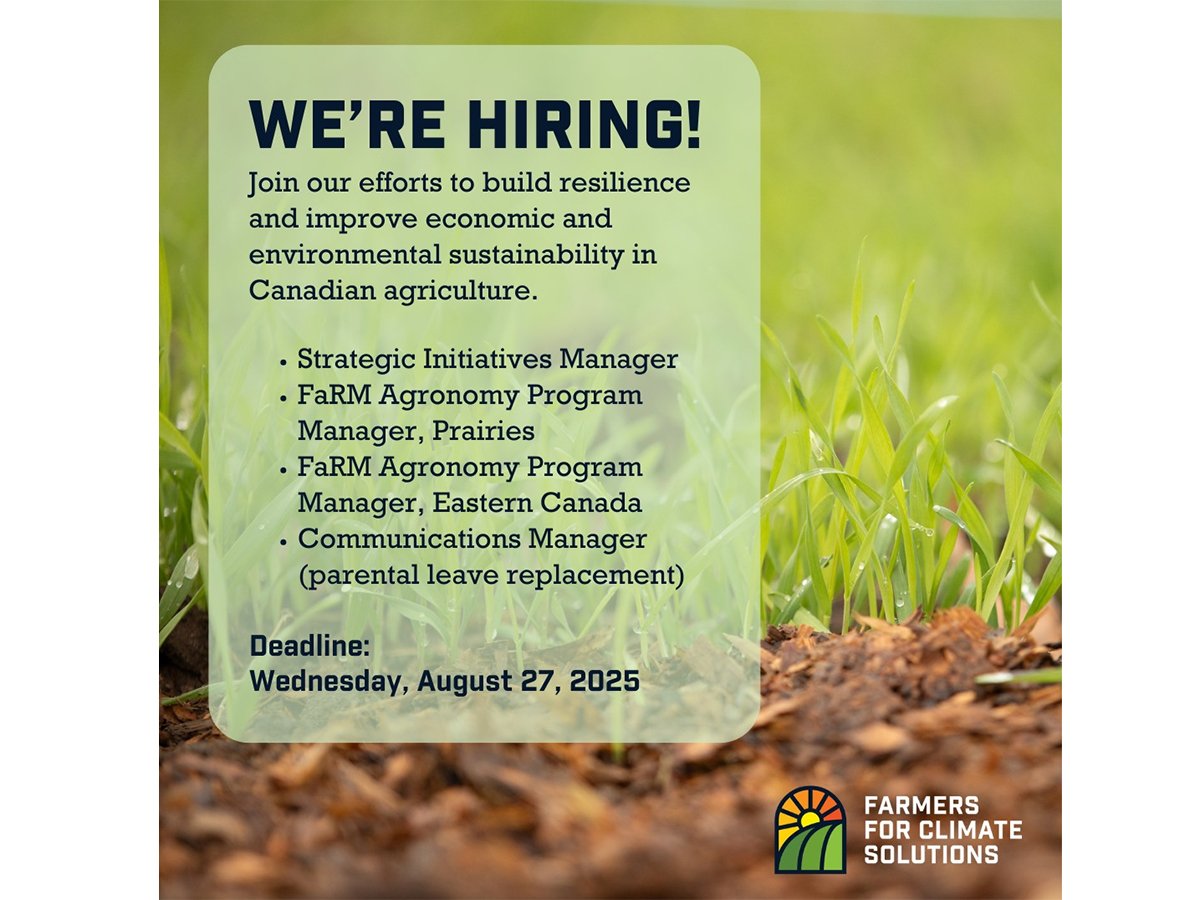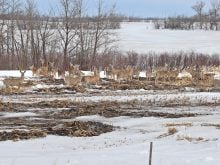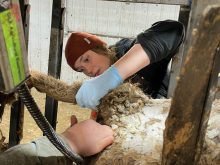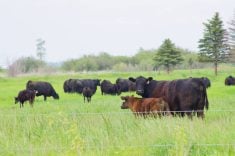The debate over whether producers need to provide pain relief to cattle is long over. It is both ethical and economical, says the animal welfare research chair at the University of Calgary’s faculty of veterinary medicine.
“We don’t really need to have discussions about whether animals experience pain anymore or what causes pain.
“The data is very clear and producers understand (that cattle feel) pain,” said Ed Pajor, animal welfare research chair at the University of Calgary faculty of veterinary medicine.
The question is how to manage pain cattle experience during branding, castration, dehorning and most recently, calving.
Read Also

Environmental farm group has Ottawa’s attention
In 2021, Farmers for Climate Solutions published a report on how Canada should reduce emissions from agriculture. Not long after, the federal government implemented most of the recommendations in the report.
The pain experienced during a difficult birth for the cow and the calf is the most recent area of research.
Other stories in this special feature on animal health:
- Benefits of early vaccinations carry on through calf’s life: research
- Vaccinations not a cure-all, but important in prevention
- Pain management important but not straightforward
- Nasal vaccines deliver solid infection protection
- Low-cost producers must vaccinate animals
After a difficult calving, a calf may not get up and suckle right away to receive valuable maternal antibodies in colostrum or there could be problems with mothering.
“Right now, we do nothing. Surely we can do better than that,” Pajor said.
A recent survey conducted from a select group of western ranchers found more are using pain relief under certain circumstances.
Veterinarian Melissa Moggy’s master’s thesis surveyed producers to describe pain- and stress-associated practices on farm, as well as producer perceptions toward pain relief.
A questionnaire was sent to 109 producers across the West in the spring of 2015. Fifteen producers were further interviewed in the fall.
The survey found 46 percent of the respondents used pain relief such as anti-inflammatories for various procedures. Others said they made an effort to avoid painful situations for cattle.
“The people were aware of pain in their cattle and they tried to minimize it as much as possible,” she said.
The producers bred for polled cattle to avoid dehorning and used bulls with reputations for easy calving to curb dystocia, or obstructed labour.
Most producers surveyed said they used a band to castrate bulls younger than one week old.
In Moggy’s study, participants said they used pain relief for dystocia more than half the time and 100 percent of the time if a caesarian section was required.
“Producers reported giving NSAIDS to both the cow and the calf at the time of dystocia,” she said.
A series of field studies are underway to look at pain experienced by both calf and mother during a difficult calving.
Researchers know that in 60 percent of births that require hard pulls, the calves don’t get up and suck colostrum on their own within four hours. Forty percent of easy pull calves do not get up in four hours, said veterinarian Claire Windeyer at the University of Calgary.
Research is assessing indicators of pain like muscle inflammation, stiffness or trauma in newborns. The researchers want to know how compromised those calves might be and how well they recover.
“Those calves that were a hard pull are not going to want to get up and suck and therefore are going to have lower levels of passive immunity,” Windeyer said.
The studies tried injectable meloxicam, as well as a placebo to compare pain and inflammation.
Cattle may be stoic about showing discomfort and pain, but producers can use common sense to tell if animals are experiencing difficulties.
“There is room for us to better mitigate that pain,” she said.
Next, researchers plan to recruit herds into their studies on pain following dystocia. The hope is to find 200 assisted calvings in which half will be treated and half will receive a placebo.
Contact barbara.duckworth@producer.com
















